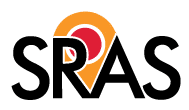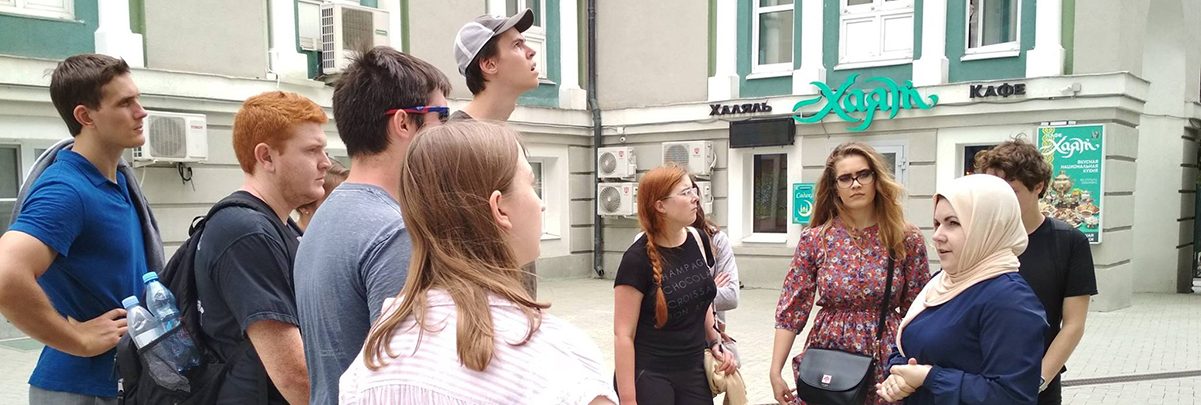Advising for SRAS
We partner with institutions (universities and language centers) to develop programs that uniquely maximize the strengths of each location and institution. Our often-exclusive curricula are designed with Western credit transfer requirements in mind. Our partner institutions administer the programs, providing classrooms and teachers. SRAS provides program oversight and those services that international students need but local institutions can’t or historically haven’t provided. These include pre-departure orientation, on-site orientation, insurance, 24-hour in-country support, preparing documentation for credit transfer, cultural programs, travel options, and internship opportunities, and more. To find out more about what makes SRAS unique, click here.
Except in cases where programs list specific requirements, anyone who is over 18 years of age and who has already earned a high school diploma may apply for our courses. We generally expect applicants to have a minimum GPA of 2.5 overall and 3.0 in major courses, but GPA is not the only factor we consider when reviewing an application.
The majority of our students are undergraduate and graduate students from universities and colleges across the US. Applicants need NOT be a US-resident or a current student at a university or college to apply. If the student is enrolled in a university or college, that institution need not be an SRAS partner or affiliate for the student to apply. SRAS does not discriminate based on age, sex, race, or any other factor.
Most of our programs do not require any previous foreign language study. Those few programs that do state so on the program page.
For any eligibility questions, including questions about accommodating disabilities or special circumstances, please contact us.
All SRAS programs are eligible to receive academic credit from a student’s home institution, if the students has one. The decision of whether to award that credit is solely at the discretion of the home institution and its particular rules. SRAS will help facilitate credit transfer by providing any information the home institution requires.
Current SRAS Programs with a US School of Record are as follows:
- All programs in Kyrgyzstan are transcripted by the University of Montana.
- All programs in Ukraine, Georgia, and, optionally, in St. Petersburg, Russia, the transcript is issued by Stetson University.
For all other programs, transcripts are issued by the host university. Each host university is clearly noted on each program page.
Transcripts issued by our host universities for short-term (visiting) students are typically in English, and in some cases in both Russian and English. Most use academic hours of 40-45 minutes. In some locations, transcripts may reflect ECTS credits, in others – contact hours. Grades may be indicated in any of the below formats:
| Word | Numeric | Letter |
| Excellent | 5 | A |
| Good | 4 | B |
| Satisfactory | 3 | C |
| Unsatisfactory | 2 | D |
| Fail | 1 | F |
In some locations, students may take additional short seminars/courses that may appear on a transcript as pass/fail.
Please contact us with any questions or concerns about credit transfer or transcripts. We can provide a sample transcript for any program upon request.
Application and Enrollment: upon first contact students are assigned an SRAS consultant who will help guide the student through the program selection and application process. This includes selecting the appropriate program and destination based on the advantages of each relative to the student’s academic, professional, and personal interests and objectives. We also, if needed, help our students navigate the approval process at their home university, providing any information they need to secure credit or financial aid transfer.
Pre-departure orientation: a series of informational emails are sent to all students by the SRAS Student Manager as part of pre-departure orientation. These emails include information on health and safety, finances and student budgets abroad, visas and passports, and culture shock. Students are required to confirm they have read the Orientation Guide recieved from us electronically six weeks before they depart. The Orientation Guide contains extensive, location-specific information, including contact info for on- and off-site staff, US embassies or consulates for their location, and other information. Students are required to print two copies of the guide and bring one copy with them, while leaving the other copy with someone at home.
Visas: In all cases, SRAS works directly with the student to obtain the appropriate visa. Visa processing is included in the program cost in all SRAS programs for US-based students participating in programs in Russia. If a student will be overseas at the time of visa processing, the visa support is shipped to the student directly for processing in their current country of residence.
Housing: Housing options and details can be found on each individual program page. The majority of our programs include dorm stay with home stay as an option for supplemental cost which varies by location.
Excursions: SRAS cultural programs are designed to give students an intensive, hands-on, sensory introduction to their location as well as complement their study. These structured experiences are meant to be memorable, educational, and an opportunity for students to get to know each other and locals.
Insurance: all SRAS programs include full health and accident insurance. Administered by Cultural Insurance Services International and underwritten by The Insurance Company of the State of Pennsylvania, the plan (with no deductible per accident or illness) covers medical expenses up to $250,000 and several other services. A PDF of the full coverage plan is available upon request. The insurance plan meets the requirements for Boren and other scholarships.
All students participating in SRAS programs are automatically enrolled in the plan, unless they can show an insurance card proving that they already have international coverage at the same level or higher. In this case, the cost of the SRAS insurance policy can be deducted from the overall program cost.
Travel: because SRAS students come from US universities across the country, students travel to their destinations abroad independently. Airport transfers (from the airport to accommodations at program start, and from accommodations to airport at program end) are arranged by SRAS and are included in the program price.
On-site orientation: all SRAS programs include onsite orientation, conducted the day of the student’s arrival, or the day after if the student arrives late in the evening. The following items are covered in all locations:
- Registration procedures for passport/visa and visa extension procedures when applicable.
- Relevant local laws including what documentation students need to carry at all times.
- If applicable, dorm rules (passing through security, use of the kitchen, lockdown hours, etc).
- If at a home stay, apartment rules (use of keys, locks, and door codes, as well as expectations regarding use of kitchen and/or laundry, etc.).
- Tour of the university campus and immediate area (where to find food, classes, the main office, etc.).
- Where and how to access the Internet.
- How/where to do laundry.
- Where to find the nearest bank and/or ATM.
- Where to get a map, if needed, and where the university and accommodations are located on the map.
- Procedure for using SRAS insurance.
- A local mobile phone is issued or assistance is provided in obtaining one. The following numbers are programmed into the phone:
- local coordinator (available 24-7 – if after 7 pm, for emergencies only),
- the relevant office of their University/Institute,
- the local US Embassy or Consulate.
- How to use the locally issued phone and home-based mobiles.
- Navigating public transport between university and dorm/home stay and city center.
Orientation follow-up: Two weeks after the program start, our Student Manager follows up with each student individually by an arranged telephone call to make sure everything is going well regarding their academics, housing arrangement, cultural adjustment, etc., and to address any problems or concerns.
General support: Students have one main on-site contact to whom they can go for general questions and help. This person is available 24-7 in the event of an emergency. Emergency contact information for at least one other person is also provided as a back-up should the main contact not be available for any reason.
"Just yesterday my student successfully defended her honors thesis on environmentalism around Lake Baikal, a project that would not have been possible without the fieldwork that she conducted on her SRAS study abroad program in Irkutsk. I hope to see more such projects in the future and will keep directing students to SRAS programs!"
- Julia Chadaga, Macalester College
"At Stetson, we've used SRAS to arrange all of our student study abroad trips for the past five or six years. During that time we've sent dozens of students on summer- and semester-long programs in Moscow, St Petersburg, Nizhny Novgorod and Irkutsk. In every interaction I've had with them, SRAS has been prompt, reliable, knowledgable, courteous and quick to lend a hand when needed."
- Dr. Michael A. Denner, Stetson University

